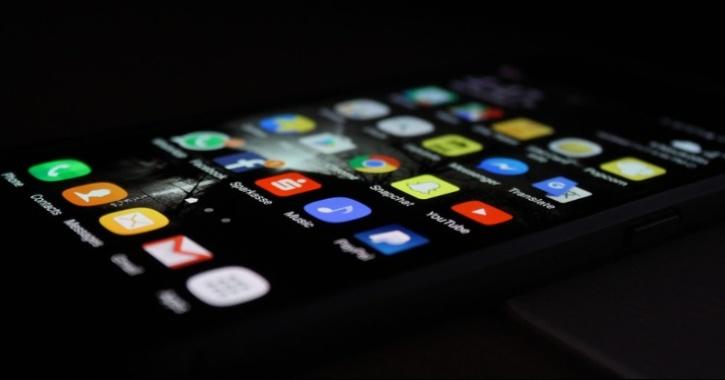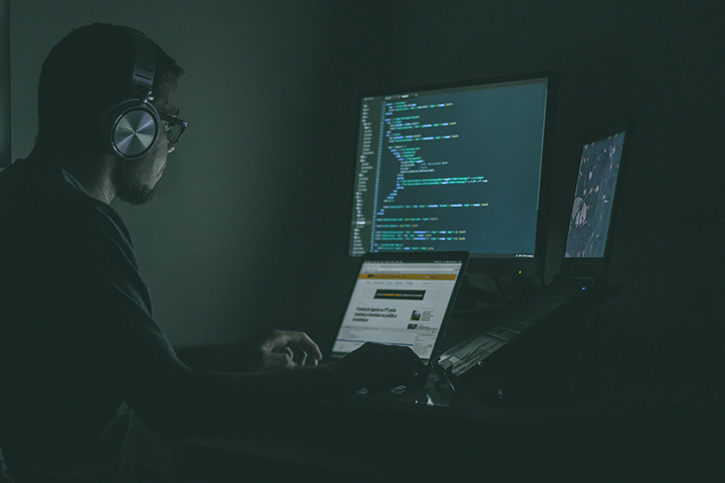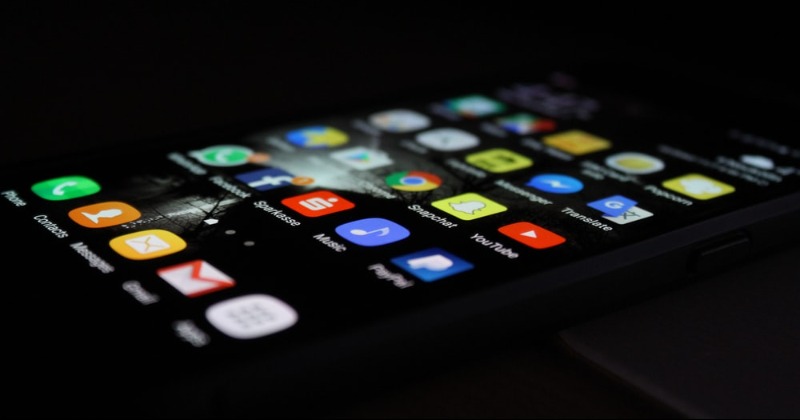[ad_1]
From predatory loan sharks taking advantage of the naivety of regular users to developing an app to “auction” Muslim women, India’s digital landscape is currently in the midst of a quality control nightmare.
Make sure you find a new game to download from your respective smartphone ecosystem store – only to be overwhelmed by so many options and play an old game on your device again – that’s what saturates it . There is so much content to consume that we no longer know what to consume. This overcrowding of digital app areas is exploited by fraudsters.
iStock
Digital ecosystems are mostly overcrowded
Apps on renowned digital marketplaces such as Google Play and Apple’s App Store are installed by average users without a background check. They may not know how to verify that an app is correct (for example, Google gives badges to apps they think are safe) or they may be in a hurry to get the work done (this could be for something as insignificant as scanning or scanning) . Image or document).
Regardless, it’s lottery hour for scammers and digital hackers every time you install a potentially malicious app that may not show any obvious signs of maliciousness, but behind the scenes, this app can suck up your private data as if its life depends on it – what it does!

In the dark
What “Bulli Bai” and loan shark apps tell us
The same thing happened when some people thought that illegally using images of Muslim women and conducting a metaphorical “auction” of these women on Microsoft’s GitHub was somehow acceptable.
Definitely not! Now the three defendants (including an 18-year-old girl) are currently in custody. It’s unclear how GitHub reviews and rates the content of everything developers create on the platform, as this has happened twice on the developer-centric platform.
Also read: Deafening silence: What ‘Bulli Bai’ and ‘Sulli Deals’ tell us about Big Tech Giants
For the first time, an app called “Sulli Deals” wanted to auction Muslim women digitally, and its nefarious successor, Bulli Bai, wanted to do the same.

Unsplash
Well-deserved public outrage may have kept the ball from rolling this time around, but the lack of action to enforce quality control on reputable platforms like GitHub (owned by the world’s second largest company in terms of market value) underscores the lack of concern so big tech companies are showing for their users, especially if they are not in North America.
GitHub Allegations that it is “committed to the privacy of developers and provides a high level of data protection for all of our developers and customers,” but doesn’t really explain how an app that was created to harass a particular community got onto the platform unscathed.
Loan shark apps are another fresh in-app hell exacerbated by the ongoing pandemic, especially here in India. Loud on Business hours Report from June 2020, at this point in time at least 50 apps were harassing their users endlessly, many driving others to suicide, which led Google to remove 400 such apps from its Play Store in January 2021.

spray out
Most loan shark apps look real and have names like Money Loan, Loan Paisa, Loan Udhaar, Go Cash, Money In Need, etc. – which mimic the characteristics of a verified lender.
Amid high interest rates and endless harassment, defaulters are left without a safety net if deadlines are not met. In many cases, such applications resort to public mudslingers in hopes of getting their money back.
Like physical loan sharks, digital moneylenders attack the weak and the needy. While it may seem convenient at first, such experiences quickly turn into nightmares when due dates are missed. The aftermath of this unregulated mishap led the Reserve Bank of India to put new rules in place for digital lenders to ensure loan shark apps don’t bite unsuspecting victims.
Lack of supervision
Be it Facebook’s data breaches in the past or various loan sharks on Google Play or Microsoft / Github’s passive role in the evolving Bulli Bai app crisis, lack of supervision has turned these bright digital patches into gray areas where everything from the The privacy of the user and the basic right to order is openly disregarded.
While it is true that the government has a responsibility to put in place mechanisms to regulate tech companies before they act like quasi-government, it is also the responsibility of mega-corporations to put security measures and quality control parameters in place before they roll out any service to anyone with an internet connection on his smartphone.
Also read: FB whistleblower Sophie Zhang on the social giants’ uncomfortable relationship with democracies
To be fair, it’s virtually impossible for tech companies to manually review the security of every app available on their platforms. ONE rough estimate of 2021 claims that 3,739 apps are added to the Google Play Store every day – that’s roughly 1,364,735 apps a year! What about third-party app stores and side-loading app targets?
Such competition may be fierce, to ensure the diversity and the development of better technologies, but this is exactly what scammers take advantage of to obtain your personal information, which can then be illegally sold to buyers on the dark web. Once leaked, there is no way to prevent scammers from using your personal information for illegal activities.

Unsplash
Google for example, Allegations that “Google Play Protect checks apps when you install them. It also scans your device regularly. If it finds a potentially harmful app, it could: Send a notification / Disable the app until you uninstall / remove the app automatically. “
Apple too Allegations that the App Store is absolutely safe to use – “On iPhone, iPad and iPod touch, all apps are obtained from the App Store – and all apps are stored in a sandbox – to allow the strictest controls.” “Sandboxing helps protect user data from unauthorized access by apps,” says the company.
The Indian government has also banned apps several times. For example, a group of apps, including PUBG and TikTok, were banned in 2020 citing a national security threat. But this move was not aimed at protecting the privacy and security of individual users, but rather attempted to stir up geopolitical fires.
How you can protect yourself
In the absence of a strict quality control mechanism, each user is responsible for protecting their privacy and data on the Internet.
As a user, there are a few rules that you can follow to ensure your safety before downloading new software to your devices.
To verify that it is safe to download apps from both the Apple App Store and the Google Play Store, you need to rate the rating. If everyone praises the app with the same words, these ratings could be fake.
Also read: Explained: Why to Beware of Quick Loan Apps Installed on Your Phone
On Google Play, look for the Google Play Protect logo on Apps before clicking Download. Read the app description carefully on both platforms. A company that cares about their product would never write half-hearted and misleading descriptions.
The number of downloads is another indication of the potential dangers of an app. Last but not least – you can always see which permissions the app needs! For example, if you download a stock calculator app on your phone, it doesn’t need to access your files and call logs / messages. You can limit app permissions by checking your phone settings and making sure apps only get what they offer.

Unsplash / Representation Image
If you are still concerned about starting the installation, your best bet is to check the developer page. Clicking a link takes you to a webpage error? It’s a red flag that can’t be ignored.
Since there are no single quality control measures for digital property, you will be protected from threats in the long run if you are always careful about what you store on your device. From loan sharks to data miners to perverts, preparedness is your best bet against the dangers of online life.
Did you find this story helpful? Let us know your thoughts in the comments below. For more in the world of technology and science, Continue reading Indiatimes.com.
[ad_2]

